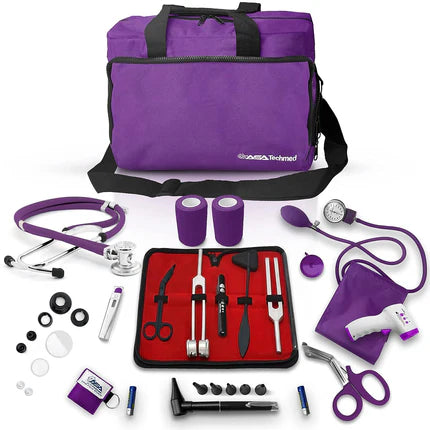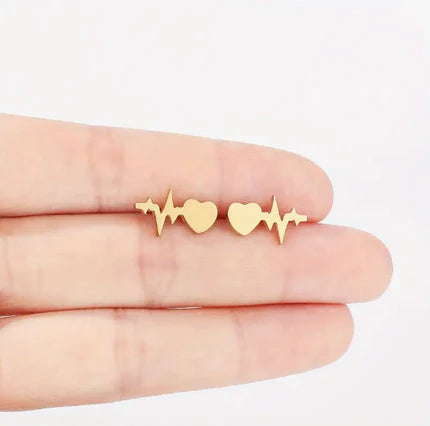Listening is one of the most important skills a nurse can develop. While you may already be adept at following medical protocols and making quick decisions in high-pressure situations, becoming a better listener can significantly enhance the care you provide to your patients. As a nurse, you are the bridge between patients and the medical team, and effective listening allows you to understand not only your patients’ physical needs but also their emotional and psychological concerns.
Listening goes beyond simply hearing words; it’s about understanding the full context of what someone is saying. When patients feel heard, they are more likely to trust you and communicate openly, which can improve patient outcomes and the overall healthcare experience. If you’re looking to become a better listener as a nurse, here are some practical tips to help you improve your communication and strengthen the bond with your patients.
1. Practice Active Listening
Active listening is more than just hearing what someone says—it involves fully engaging in the conversation. As an active listener, you focus on the speaker without interrupting, and you give verbal or non-verbal feedback to show you’re paying attention. This can include nodding, making eye contact, and using phrases like "I see" or "Go on" to encourage the speaker.
When working with patients, this type of listening helps you gather more accurate information, reduces misunderstandings, and builds trust. Take a moment to pause and ensure you’re genuinely understanding the patient’s concerns rather than thinking about your next task or response.
2. Ask Open-Ended Questions
One of the best ways to enhance your listening skills is by asking open-ended questions. Instead of asking yes/no questions, which can limit the conversation, ask questions that allow the patient to provide more detailed responses. For example, instead of asking, "Are you in pain?" try asking, "Can you describe the kind of pain you’re experiencing?"
Open-ended questions encourage patients to share more information, giving you deeper insight into their condition and how they’re feeling. This not only improves the patient’s experience but also helps you provide more effective care based on their specific needs.
3. Be Mindful of Non-Verbal Cues
Listening goes beyond words—it involves picking up on non-verbal cues such as body language, facial expressions, and tone of voice. Sometimes, what a patient isn’t saying is just as important as what they are. For example, a patient may say they’re "fine" but exhibit signs of discomfort or anxiety through their posture or facial expressions.
By paying attention to these non-verbal signals, you can ask follow-up questions or provide reassurance, helping patients feel more comfortable sharing their true concerns. This level of attentiveness makes patients feel more understood and validated.
4. Avoid Interrupting
While nursing can be fast-paced, it’s important to avoid interrupting your patients when they’re speaking. Even if you feel pressed for time or believe you know what they’re going to say, giving them the space to complete their thoughts shows that you value their input.
Interrupting not only disrupts the flow of conversation but can also make the patient feel rushed or unimportant. Letting them speak without interruption demonstrates respect and allows you to fully absorb what they’re saying before responding.
5. Clarify and Paraphrase
To ensure you’ve fully understood what your patient is communicating, it’s a good practice to clarify or paraphrase their statements. For example, after a patient describes their symptoms, you might say, "Just to make sure I’m understanding, you’re saying the pain is sharp and happens mostly at night?"
Clarifying shows that you’re actively engaged and prevents any miscommunication. It also gives the patient the opportunity to correct or expand on their explanation, ensuring you have all the necessary details to provide the best care.
6. Be Fully Present
It’s easy to become distracted during a busy shift, especially when your mind is racing through your to-do list. However, patients notice when your attention is elsewhere. Being fully present in each interaction, even if just for a few moments, can make a big difference in how your patients perceive their care.
Put away distractions, such as your phone or charts, and give your patient your undivided attention. If you’re in the middle of another task, let the patient know you’ll be with them shortly so they don’t feel ignored. Being present demonstrates that you genuinely care about their well-being.
7. Practice Empathy
Empathy is the ability to understand and share the feelings of another. In nursing, empathy is crucial for building strong patient relationships. By putting yourself in your patient’s shoes, you can better understand their emotions, fears, and concerns. This makes you a more compassionate and responsive listener.
When listening to a patient’s concerns, try to acknowledge their feelings by saying something like, "I understand this must be really difficult for you," or "That sounds frustrating." Even if you can’t solve their problem immediately, showing empathy can make them feel supported and cared for.
8. Manage Your Own Stress
As a nurse, you’re likely juggling multiple responsibilities, and the stress of the job can sometimes make it hard to be a good listener. If you’re feeling overwhelmed, it’s important to manage your stress so that you can be fully present for your patients.
Taking regular breaks, practicing mindfulness, and engaging in stress-reducing activities during your time off can help you stay focused and attentive when you’re on the job. When you manage your own stress, you’re better able to listen and respond to your patients with patience and care.
9. Acknowledge Cultural Differences
Patients come from diverse backgrounds, and cultural differences can influence how they communicate. Being aware of these differences and respecting them is an important aspect of being a good listener. For example, some patients may be more reserved when discussing their symptoms, while others may rely heavily on non-verbal communication.
Taking the time to learn about your patient’s cultural background or simply asking how they prefer to communicate can help you better understand their needs. This shows respect for their individuality and ensures that you’re providing care that’s both culturally sensitive and effective.
10. Provide Reassurance and Feedback
After listening to your patient, it’s important to provide reassurance and feedback. This could be as simple as acknowledging that you understand their concerns or explaining the next steps in their care plan. Providing feedback shows that you’re not only listening but also taking action based on what they’ve shared with you.
By reassuring your patients and giving them a sense of what to expect, you reduce their anxiety and build trust. Patients are more likely to follow through with treatment when they feel confident in your care and communication.
Listening is the Key to Exceptional Care
As a nurse, listening is one of the most powerful tools in your toolkit. It’s not just about hearing words; it’s about fully understanding your patients' needs, concerns, and emotions. When you take the time to become a better listener, you improve your ability to provide compassionate, effective care, and you build stronger, more trusting relationships with your patients.
By practicing active listening, being fully present, and showing empathy, you’ll become a more attentive and responsive caregiver. In the end, better listening leads to better patient outcomes and a more fulfilling nursing experience. So, start incorporating these tips into your daily practice, and see how your communication—and patient care—improves.
















